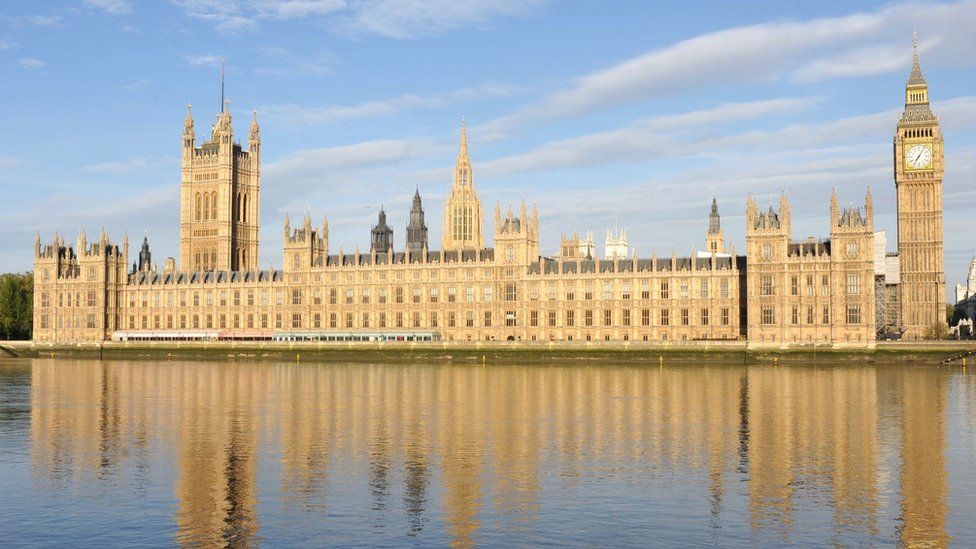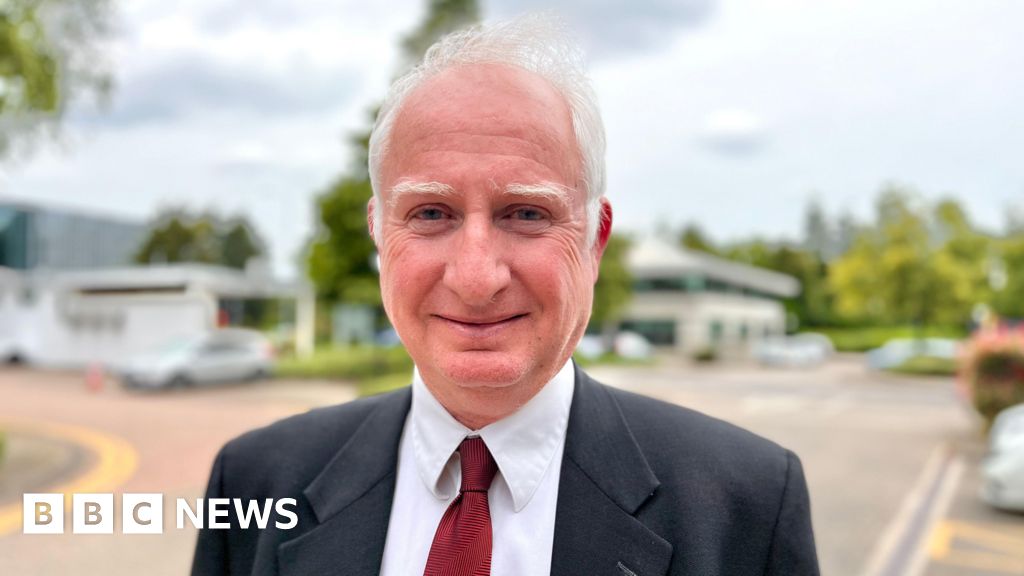ARTICLE AD BOX
 Image source, BBC/Jeff Overs
Image source, BBC/Jeff Overs
The bill is now at the committee stage in the House of Lords
The Northern Ireland Protocol Bill - the UK government's bid to change post-Brexit trading rules - will be further discussed in Parliament on Monday.
The protocol was agreed between the UK and the EU to avoid goods checks across Ireland's land border after Brexit.
But unionist opposition to the protocol has stalled devolution at Stormont.
On Friday the Northern Ireland secretary said he would call a fresh election but he has yet to set a date.
Friday marked a legal deadline for the formation of a Northern Ireland Executive following May's assembly election.
It passed without progress, meaning a fresh poll is to be held within 12 weeks.
Chris Heaton-Harris has said he has a duty to act and is expected to meet politicians from the parties which could have formed the executive on Tuesday.
If the protocol bill is passed into law it would give the British government unilateral powers to change the operation and oversight of the mechanism.
The UK has argued the legislation can be justified on the grounds of necessity under international law.
This argument has been rejected by the EU and most legal experts.
The bill is now at the committee stage in the House of Lords meaning peers are scrutinising it line-by-line and proposing amendments.
The committee stage began last week and it is due to take place for another two days in November.
The government is proceeding with the bill's passage through Parliament while at the same time continuing its negotiations with the EU to change the protocol.
Why is the protocol causing political problems?
The protocol keeps Northern Ireland aligned with the EU's single market for goods in order to prevent products which may diverge from EU standards from entering the European bloc via the Irish land border.
Northern Ireland is the only part of the UK which shares a land border with an EU member state - the Republic of Ireland.
Since Brexit, certain products imported from Great Britain into Northern Ireland are subject to checks that are not necessary in other parts of the UK.
Image source, Liam McBurney/PA Media
Image caption,Sir Jeffrey Donaldson said Westminster chaos had held up protocol talks progress
All of Northern Ireland's unionist parties have objected to the protocol because it created a trade border in the Irish Sea and caused delays and extra paperwork for Northern Ireland businesses.
The Democratic Unionist Party (DUP) has been the most vocal in its opposition and has been protesting over the arrangements since February.
The DUP has refused to return to power-sharing government in Belfast until the protocol is scrapped or changed.
Last week, Stormont parties missed a legal deadline to form a ruling executive government by Friday or face an early election.
On Sunday, DUP leader Sir Jeffrey Donaldson said the UK government should focus on its protocol negotiations with the EU instead of calling an assembly election.
"We've had three prime ministers, Westminster has been in chaos, there's been little focus on getting a solution to the protocol," Sir Jeffrey said.
Liz Truss, who formerly led the EU talks and also introduced the protocol bill earlier this year, replaced Boris Johnson as prime minister last month.
However, she too was forced to leave Number 10 last week after only 50 days in the job.
The DUP leader pointed out: "The talks with the EU only resumed a couple of weeks ago, and even then only at a technical level."
'Protocol is a necessity'
Officials have been discussing things like reducing the burden of customs administration, with a view to resuming talks at a political level.
But other parties at Stormont have urged the DUP to return to power-sharing while the talks continue in order to run public services and help alleviate the cost of living crisis.
Sinn Féin's vice-president Michelle O'Neill accused the DUP of trying to "hide behind the issues of the protocol".
"The protocol is a necessity and it is here to stay. There are things that can be smoothed out, there are things that can be made to work better and I am up for that and I hope that is what we achieve," she said.

 2 years ago
13
2 years ago
13








 English (US)
English (US)